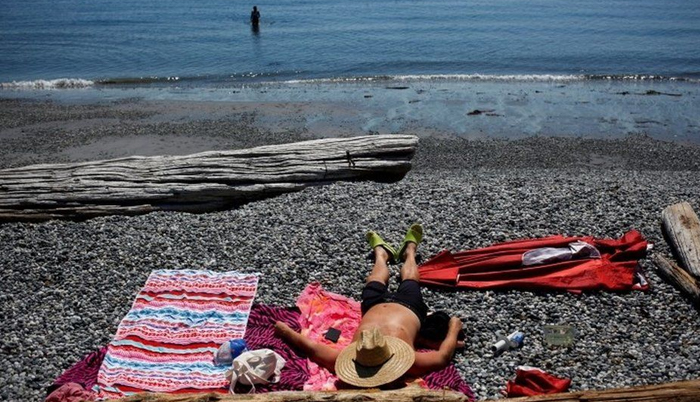
Environment Canada has issued heat warnings for British Columbia and Alberta
OTTAWA/WASHINGTON, June 30 (NNN-AGENCIES) — Dozens of people have died in Canada as temperatures across the southern Pacific Northwest continue to smash records.
Police in British Columbia say they have responded to almost 70 sudden deaths since Monday, many seniors.
They said the heatwave baking the region was a contributing factor.
On Tuesday, Canada again recorded its highest ever temperature for the third straight day – 49.5C (121F) in Lytton, British Columbia.
Before this week, temperatures in Canada had never passed 45C (113F).
“Check on your neighbours, check on family members, check on seniors you may know,” said Royal Canadian Mounted Police Cpl Mike Kalanj, based in the Vancouver suburb of Burnaby.
“We are seeing this weather can be deadly for vulnerable members of our community, especially the elderly and those with underlying health issues. It is imperative we check on one another during this extreme heat.”
According to the the RCMP, heat is believed to have been a contributing factor in deaths of 69 people in the Vancouver suburbs of Burnaby and Surrey. Most were elderly or had underlying health conditions.
Environment Canada has issued heat warnings for the provinces of British Columbia and Alberta, along with areas of Saskatchewan, the Northwest Territories and a section of Yukon.
“We are the second coldest country in the world and the snowiest,” said David Phillips, a senior climatologist for Environment Canada.
“We often see cold snaps and blizzards but not often do we talk about hot weather like this,” he said. “Dubai would be cooler than what we’re seeing now.”
Temperatures in the American cities of Portland and Seattle have reached the highest levels since record-keeping began in the 1940s.
Portland in Oregon hit 46.1C (115F) and Seattle 42.2C (108F), according to the US National Weather Service. The heat is intense enough to melt cables, shutting down the Portland Streetcar Service on Sunday.
An electrical utility in Spokane, Washington, has introduced rolling blackouts to cope with huge power demand as residents run air conditioners.
One Seattle resident said that the city in Washington state felt like a desert.
Experts say that climate change is expected to increase the frequency of extreme weather events, such as heatwaves. — NNN-AGENCIES





